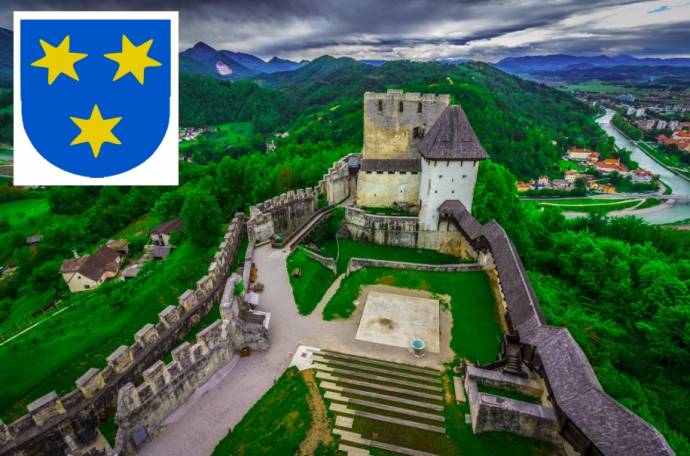STA, 16 November 2018 - Standing halfway between Ljubljana and Maribor, Celje has been facing environmental issues and a drain of young people, having recently lost the title of the third-largest city in Slovenia. But everything suggests that there will be no change after local elections as long-time Mayor Bojan Šrot is virtually unrivalled.
Šrot, who has been at the helm of the city administration for two decades, is heading for the first local elections with his own list, after leaving two years ago the People's Party (SLS), which he led between 2007 and 2009.
No major party has managed to put forward a candidate in the last 20 years who could seriously rival Šrot, who still enjoys strong support despite lingering criticism and is likely to carry the vote in the first round.
Šrot has established his own party, the Celje Mayor's List, which has gained nearly 400 members since its inception in late August. He says the party is positioned strictly in the centre and "quite un-ideological", focusing on local issues.
His competition this time includes Sandi Sendelbah, a former municipal accountant who was actually fired recently by the mayor, and who will run alone in the elections as his list Open Celje has been rejected for administrative reasons.
Supported by a group of voters, Sendelbah strives for what he calls democratisation of the local government, and also stresses measures to address environmental issues and measures to keep young people from leaving the city.
Related: All our local elections coverage is here
The Democrats (SDS), the largest parliamentary party, are running with music teacher Matjaž Železnik, 61, who would like to revive the city centre, construct a new retirement home and introduce measures to encourage the young to stay in the city.
The incumbent is also facing Marko Zidanšek, the former party colleague who resigned as the SLS president after the party narrowly missed the threshold to enter parliament in the June general election.
Zidanšek, who heads a waste management company, sees the creation of new jobs with high added value as a priority, as this would make the city attractive to young people and highly-qualified workforce.
The Left has put forward librarian Mateja Žvižej, who if elected would discuss with representatives of local communities ways to introduce participatory budget at the micro level.
She believes that Celje needs to attract companies which employs highly educated staff with high added value and that every elderly citizen need to be provided with timely and quality home assistance.
Also in the running are Branko Verdev, the oldest candidate, aged 63, who runs with support from the Social Democrats (SD) and Matevž Vuga, the youngest candidate (31), who has been put forward by the Modern Centre Party (SMC).
Polls carried out among the residents suggest that many people indeed want change. In October, half of respondents said it was time for a change at the helm of the municipality, and only 20% said the current team should stay on.
But on the other hand, only a quarter are satisfied with the competition Šrot is facing in the elections, and more than half believe that he is facing mediocre competition.
The most recent survey shows Šrot getting more than 50% of support of the decided respondents and other candidates failing to get more than 5%. Šrot is also projected to win the most seats in the city council with his own list.
But whoever wins on Sunday following a lacklustre election campaign will have to address the issue of young people leaving the city, as they see not much opportunity there, and the environmental burden brought by the old site of chemical company Cinkarna Celje.
Many young people who leave Celje to study in Ljubljana or elsewhere do not return to their home town, disappointed by a job market that has been weak despite efforts by the authorities to create an innovative business environment.
The city is also in dire need of a bypass road as cargo vehicles still practically drive through the city centre, which is in turn seeing a lack of activity and events as many shops, cafes and restaurants are being closed.
All our stories about Celje are here







